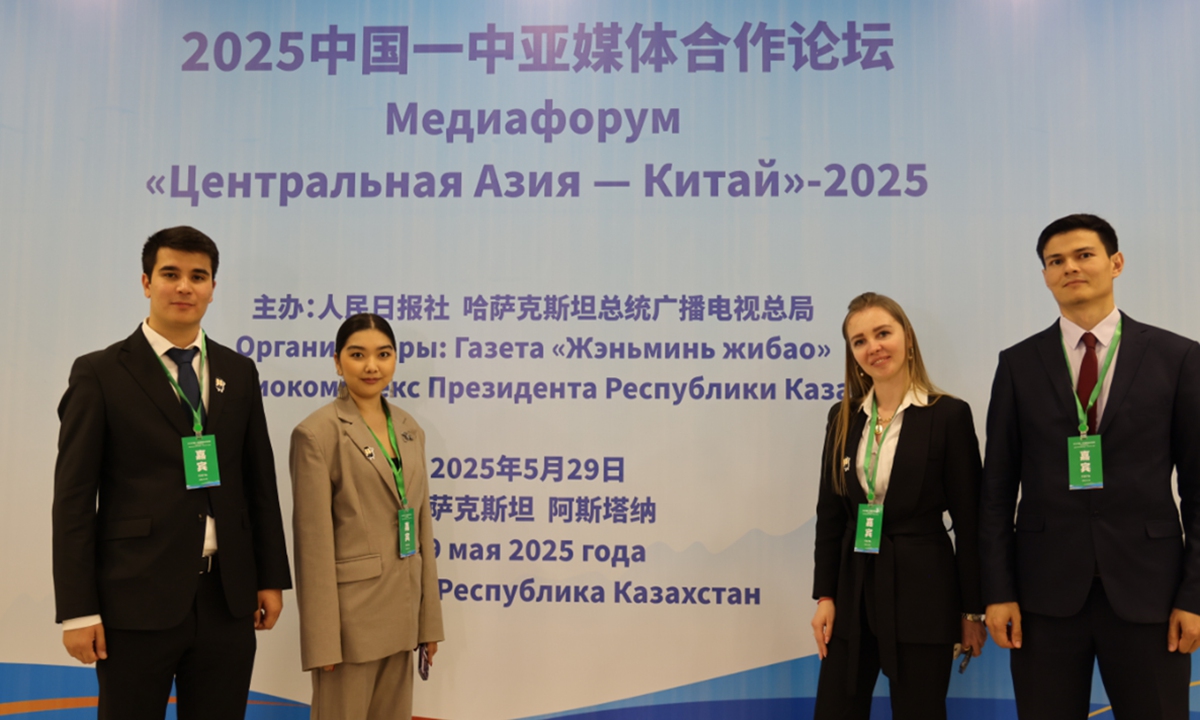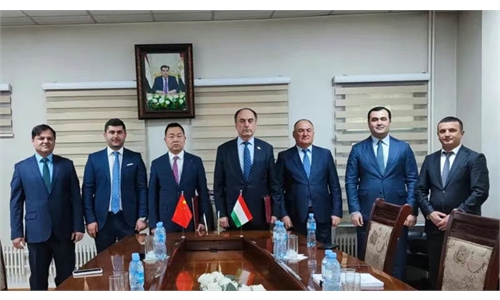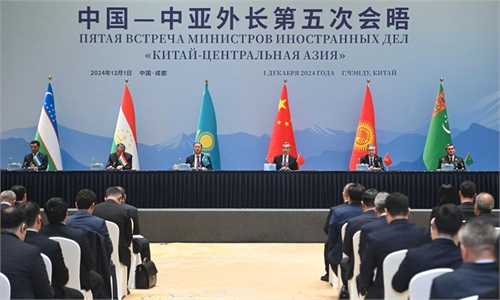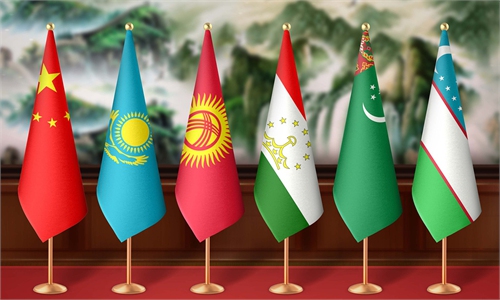
Young media representatives take group photos at the China-Central Asia Media Cooperation Forum held in Astana, Kazakhstan, on May 29, 2025. Photo: People's Daily
Chinese and Central Asian media representatives called for enhanced cooperation to promote people-to-people connectivity, uphold fairness and development, and jointly combat fake news, thereby strengthening good-neighborly relations and injecting a dose of stability into a turbulent world at the 2025 China-Central Asia Media Cooperation Forum held in Astana, Kazakhstan, on Thursday.
Kazakh President Kassym-Jomart Tokayev sent a congratulatory letter to the forum, stating that the Republic of Kazakhstan attaches great importance to developing a permanent and comprehensive strategic partnership with China.
The 2025 China-Central Asia Media Cooperation Forum serves as an important platform for enhancing mutual understanding, trust, and partnership in the media sector, said the president.
Representatives noted in speeches that media exchanges are a vital component of China-Central Asia relations. Media outlets from China and Central Asian countries should seize the opportunities of the times, broaden cooperation perspectives, and jointly tell stories of friendly collaboration, contributing wisdom and strength to building a closer China-Central Asia community with a shared future.
Sun Weidong, secretary-general of the Secretariat of the China-Central Asia Mechanism, expressed hope in his speech that mainstream media will further publicize the common positions and propositions of China and Central Asian countries in international affairs, resist disinformation in all forms, safeguard international fairness and justice, and uphold their legitimate rights.
Han Chunlin, Chinese ambassador to Kazakhstan, noted that in today's world, changes unseen in a century are accelerating, with growing deficits in peace, development, security and governance. A Cold-War mentality, unilateralism, bloc confrontation and hegemonism have caused profound harm, and the world has once again reached a critical juncture. Only through unity and cooperation can countries maintain world peace and stability and promote global development and prosperity, the ambassador noted.
At present, China-Central Asia cooperation is deepening and achieving tangible results. Media outlets should leverage their strengths to advocate for solidarity and cooperation, respect for sovereignty, and enhanced mutual learning among civilizations, in order to contribute to building a closer China-Central Asia community with a shared future, according to the ambassador.
The forum was co-hosted by People's Daily and the Kazakhstan President's TV and Radio Complex. Over 200 representatives from mainstream media, experts, scholars, and business figures from China and Central Asian countries attended.
The Global Times' coverage of China's green development achievements and its journey toward sustainable modernization, displayed at the forum, deeply impressed the global representatives.
Aygul Rahimova, a reporter from a Turkmenistan newspaper, told the Global Times on Thursday that young people in Turkmenistan are eager to learn more about China through media, given its growing international influence. Rahimova expressed her desire to visit Xi'an, the host city of the first China-Central Asia Summit in 2023, and is looking forward to the upcoming 2025 China-Central Asia Summit.
"Media collaboration between China and Central Asia, as highlighted by forums like today's, is vital for fostering deep cultural connections and mutual understanding among peoples," Kemelbek Oishybayev, chairman of Kazakhstan's National Media Association and former vice minister of Information and Social Development, told the Global Times at the forum.
The media expert sees immense potential in joint efforts between China and Central Asia to combat misinformation and promote shared narratives. "We have a long history of extensive cooperation, which lays a solid foundation for our partnership. By strengthening these ties, we not only enhance regional unity but also create opportunities for our citizens to engage more closely, building on our historical bonds and shared aspirations for a vibrant Asian future," said Oishybayev.
The forum also showcased over a dozen images highlighting cooperation achievements between China and Central Asian countries in fields such as energy, infrastructure, culture, and language, demonstrating tangible benefits for local communities. Many journalists gathered around these exhibits, engaging in lively discussions.
Media representatives on site hope that the Belt and Road News Alliance (BRNA) can play a greater role in helping media organizations from various countries strengthen mutual understanding, enhance friendship, and promote cooperation.
As of May 2025, the Alliance has admitted 292 media outlets from 114 countries across all continents, covering audiences in the six United Nations language regions, including Chinese, English, French, Russian, Arabic, and Spanish. It is the largest, most widely covered, and most member-inclusive major media cooperation platform under the framework of the Belt and Road Initiative. Among them, 29 member organizations are from Central Asia, the Global Times learned from the forum.




